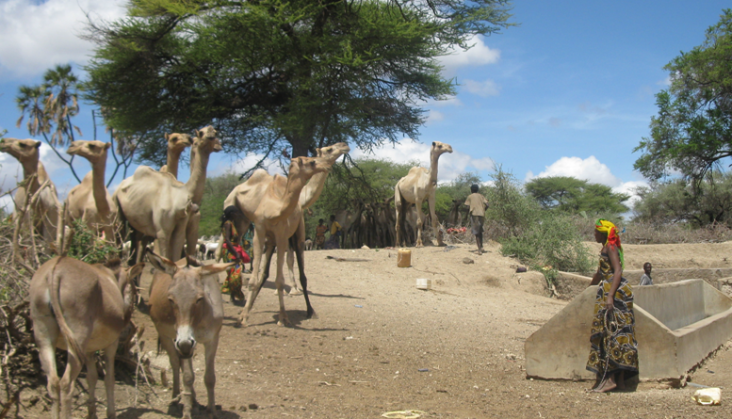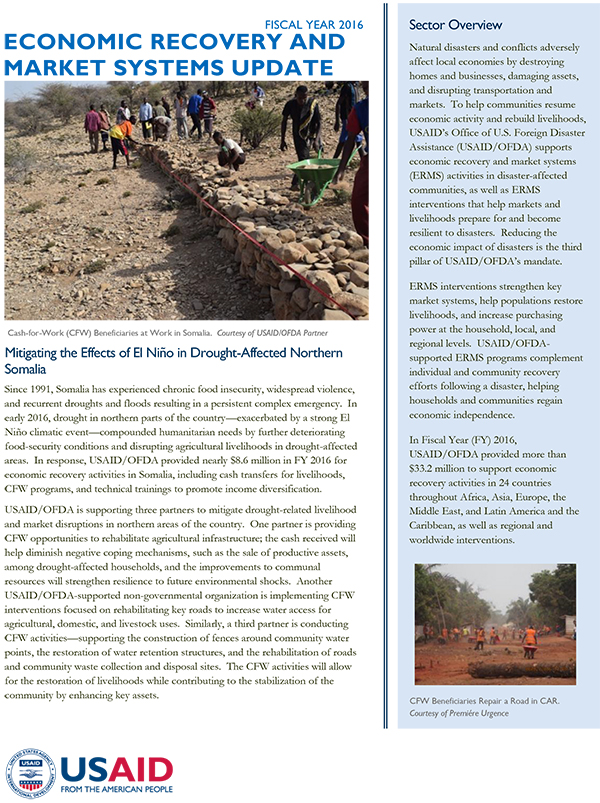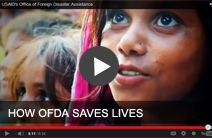- What We Do
- Agriculture and Food Security
- Democracy, Human Rights and Governance
- Economic Growth and Trade
- Education
- Ending Extreme Poverty
- Environment and Global Climate Change
- Gender Equality and Women's Empowerment
- Global Health
- Water and Sanitation
- Working in Crises and Conflict
- Disaster Assistance
- Political Transition Initiatives
- Conflict Mitigation and Prevention
- Countering Violent Extremism
- Disaster Risk Reduction
- Peacebuilding and Reconciliation
- Providing Safe & Secure Environments for Development
- Recovering From Crisis
- Resilience
- Tech Challenge for Atrocity Prevention
- World Humanitarian Day
- U.S. Global Development Lab

Natural disasters and conflicts adversely affect local economies by destroying homes and businesses, damaging assets, and disrupting transportation and markets. To help communities resume economic activity and rebuild livelihoods, USAID’s Office of U.S. Foreign Disaster Assistance (USAID/OFDA) supports economic recovery and market systems (ERMS) activities in disaster-affected communities, as well as ERMS interventions that help markets and livelihoods prepare for and become resilient to disasters. Reducing the economic impact of disasters is the third pillar of USAID/OFDA’s mandate.
ERMS interventions strengthen key market systems, help populations restore livelihoods, and increase purchasing power at the household, local, and regional levels. USAID/OFDA-supported ERMS programs complement individual and community recovery efforts following a disaster, helping households and communities regain economic independence.
In Fiscal Year (FY) 2016, USAID/OFDA provided more than $33.2 million to support economic recovery activities in 24 countries throughout Africa, Asia, Europe, the Middle East, and Latin America and the Caribbean, as well as regional and worldwide interventions.









Comment
Make a general inquiry or suggest an improvement.